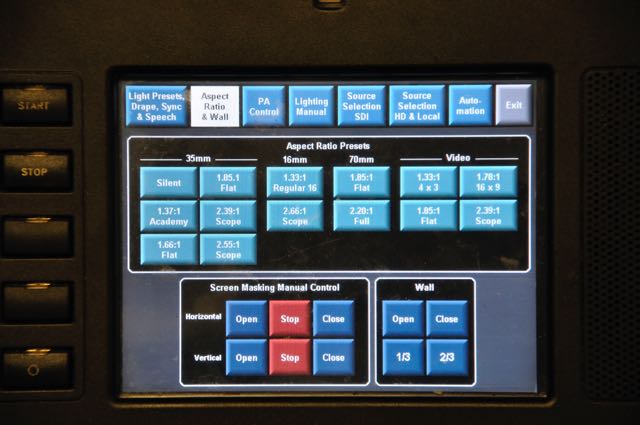|
|
 
|
|
Author
|
Topic: My blog post defending DCP
|
|
|
|
|
|
|
|
|
|
|
Leo Enticknap
Film God

Posts: 7474
From: Loma Linda, CA
Registered: Jul 2000
|
 posted 03-14-2017 12:36 AM
posted 03-14-2017 12:36 AM





quote: Blog
Many worry, with reason, that digital films will not be archived for future generations. Some go so far as to call “digital archiving” an oxymoron. In reality, digital information can and should be archived.
Anything can be archived if you put the money into archiving it. I find it amusing that one of the main anti-digital arguments used by the "film forever" is what Paolo Cherchi Usai called the "digital dark age" - the idea that digital assets are at greater risk of permanent loss, and that more culturally important ones will be lost, than has been the case with their analog predecessors.
According to David Pierce's research, something like three quarters of the silent features made in Hollywood do not survive. The reason they were lost is very simple: they were considered literally not worth saving, either economically (before TV, the value of a film after its initial theatrical run was close to zero) or culturally (film = lowbrow pop culture, not the sort of stuff you'd put in an archive or museum). These movies were made on the same stuff that the film forever crowd believe has superior preservation qualities to any audiovisual storage medium ever invented. Yet most of them have not survived.
Nevertheless, nitrate decomposition was known about by the 19-teens and the chemistry was fully understood by the early 1940s. If the will and the money to preserve these movies had been there since their initial production, they would have been preserved. But it wasn't.
Exactly the same applies to digital assets. You can be damn sure that Hillary Clinton's emails will be carefully preserved by NARA (hence the reason she tried so hard to destroy them in the first place!) in hundreds of years' time, but Joe Schmoe's Facebook posts? A tiny proportion will likely survive by accident to be the source of constant fascination by academics in the 24th century. But most won't.
Once again, we know how to preserve digital assets: constantly maintained RAIDs, offline copies in separate locations that are regularly migrated from formats becoming obsolete to ones that are current, etc. etc. It can be done by writing checks, and the figures on them will get smaller as time goes on.
| IP: Logged
|
|
|
|
Steve Guttag
We forgot the crackers Gromit!!!

Posts: 12814
From: Annapolis, MD
Registered: Dec 1999
|
 posted 03-14-2017 07:09 AM
posted 03-14-2017 07:09 AM




quote:
In theory, you could screen an early Cinemascope film in the right aspect ratio from 35mm, but it wouldn’t be easy. If you have an original print or an exact duplicate of one, the projectors would need either new lenses or a wider screen, as well as new aperture plates. You could make a print compatible with modern film projectors by letterboxing the image (which is what the DCP at the Castro did), but the optical printer needed for the job would lose significant image detail.
Let me get this straight...you claim an optical reduction print would lose significant detail yet hand wave that a 2.55:1 negative that started with 4-6K of information (depending on who you believe, the source negative, lenses...etc that may have prevented full realization) and knock that down to an effective 2048 x 800 image or about "1.6K" and that's okay?
DCPs, as a medium to get content to the masses, including classical content has tremendous advantages over film. Someday, it will also have the ability to get better quality content to the masses, as well but please don't pony up a medium that slashed 3/4 of the resolution, a portion of the colorspace a fraction of the contrast and a miniscule amount of the archivability of current film as if were are there now.
For the record, I have installed multiple 2.55:1 systems:

(AFI/Silver's masking control screen on one of their touchpanels)
There is no question that the number of venues that can support the comparatively rare formats are quite small and it is GREAT that DCPs allow these titles, in the proper ratio, to be seen by people in a theatrical setting in many more places, BUT, it is but a facsimile of original. At least, at this stage, it is. Did the theatre you watched this title in properly mask their screen too? Are the crisp lines of the DCP imager sufficient for you to call dead screen proper (the big chains seem to think so, it doesn't make it right).
DCPs do not need defending (and neither does film, for that matter). Depending on the context of a presentation, the nuance of the medium and presentation techniques vary greatly. If a movie is shown a child's birthday party, the medium is rarely relevant. However if a presentation is supposed to be for an audience that would/should get all that the craftspeople put into the creation of the movie, or perhaps for historical context of where filmmaking was at a particular time, then the medium (and its relative purity) used to present that movie is of paramount importance.
I've seen quite a few DCPs of classic titles. Very few have been impressive, to me. I've seen a fair number of bad dupes of film too. The worst track record, for me, has been DCPs of 65/70mm features. Thus far, they have all been let-downs and a far cry from their 70mm versions (unless we are talking about a badly faded print with damaged sound).
And lastly, yes, many of our terms in language have their roots in prior technology. Do you ever "pull-up" to the gas pump? Not many horses need to have their reins pulled up at gas pumps and there are fewer and fewer phones that need to be "hung up" much less "dialed." However, in this industry, film conjures that plastic stuff with the holes in it where magic happens via both photochemical and electromechanical processes. To use the term film, in some contexts, is quite misleading, in other applications it is as generic as Kleenex versus facial tissue. A theatre saying it is presenting a movie on film is quite different than a person saying "I saw that film".
| IP: Logged
|
|
Rick Raskin
Phenomenal Film Handler

Posts: 1100
From: Manassas Virginia
Registered: Jan 2003
|
 posted 03-14-2017 07:29 AM
posted 03-14-2017 07:29 AM




Original article:
It’s still real if it’s digital
March 9, 2017March 8, 2017 by Lincoln Spector, posted in Digital Projection, Technical
Last January, I finally saw an early Cinemascope movie the way it was meant to be seen: on a big theater screen, with the original 4-track stereo soundtrack, and the full 2.55×1 aspect ratio (2.35×1 didn’t become the official Cinemascope standard until 1957).
And there was no physical film involved. The movie was projected digitally from a 2K DCP.
(For the record, the movie was Violent Saturday, and I saw it at the Castro as part of the Noir City film festival. You can read my report.)
I had seen other early Cinemascope films in 35mm over the years. A couple of them even had their original 4-track stereo soundtracks. But none were in the right aspect ratio. It took digital projection to show these movies properly.
I recently read EatDrinkFilms‘ unsigned article, Is it Reel or is it……?, celebrating “the glorious depth and richness that ONLY film can provide.” I don’t buy that. A well-scanned and -mastered digital cinema package (DCP) can be as gloriously rich as anything photochemical, without the jitters and the scratches of physical film. And it will look like a brand-new print after 1,000 screenings.
In theory, you could screen an early Cinemascope film in the right aspect ratio from 35mm, but it wouldn’t be easy. If you have an original print or an exact duplicate of one, the projectors would need either new lenses or a wider screen, as well as new aperture plates. You could make a print compatible with modern film projectors by letterboxing the image (which is what the DCP at the Castro did), but the optical printer needed for the job would lose significant image detail. And besides, to my knowledge, no one has ever printed a Cinemascope film that way.
Cinemascope is only one example of what DCPs can do. Digital restorations have removed the blemishes of time and brought many classic films – from the silent era to the early 21st century – back to life. New restorations are popping up all the time.
Let’s get the semantics out of the way. A motion picture shot and projected digitally is still a film. The English language doesn’t change because you don’t like new technology. If you’re going to insist that it can’t be a film because it was not shot or shown on film, then you better stop praising the beauty of 35mm prints. Before the invention of photography, a print was something you made on a press.
Don’t get me wrong; I love physical film. An archival or otherwise special print, in good condition, is a thing of beauty. Three of my top twelve movie-going experiences of 2016, in which I consider theatrical presentation as well as the movies themselves, were shown in 35mm. Another, The Hateful Eight, was in 70mm. But that list also included five classic films, mostly new restorations, screened from DCPs.
Like everything else created by humans, digital transfers and restorations can be done badly. The Big Lebowski
and Rear Window should only be screened on 35mm until Universal takes them back to the scanner and masters them correctly. But these are exceptions. As I write this, I’ve seen more than 50 classic films on DCP. Only six made me wish I was watching physical film.
The vast majority of classic films have yet to be digitally restored, and most of them never will. Therefore, a properly-equipped revival theater should have two well-maintained 35mm projectors (or better yet, 35/70mm) for safely showing archival prints. But it should also have a DCP-compatible digital projector, preferably 4K.
Many worry, with reason, that digital films will not be archived for future generations. Some go so far as to call “digital archiving” an oxymoron. In reality, digital information can and should be archived. The Motion Picture Academy has been working on the issue for years. But it will take decades to know for sure how successful these practices will be, which is why studios and archives should continue to make physical film negatives as a form of backup. At least one major studio, Sony/Columbia, is making these celluloid backups while also archiving films digitally.
Every major technological advance in the history of cinema – sound, color, widescreen, and so on – was met with derision by those who write about film for a living. Those past changes significantly altered the cinematic esthetic. The move to digital is more like the switch from nitrate to acetate; most moviegoers don’t even know it happened.
Cinema has always been an art based on constantly-changing technology. Digital is just another step in the right direction.
| IP: Logged
|
|
|
|
|
|
|
|
Bobby Henderson
"Ask me about Trajan."

Posts: 10973
From: Lawton, OK, USA
Registered: Apr 2001
|
 posted 03-15-2017 11:09 AM
posted 03-15-2017 11:09 AM




quote: blog post
Cinema has always been an art based on constantly-changing technology. Digital is just another step in the right direction.
I don't share the same enthusiasm. I look at the paradigm shift from film to digital video as the opening of a Pandora's box. Whether the box was opened out of curiosity or even with the best of intentions the act is delivering far reaching consequences.
I don't agree with the notion that cinema has always had constantly changing technology. Maybe in movie production, but not so much in exhibition. The fundamentals of film projectors changed very little over 100 years. Lots of incremental changes took place over the years, but the fundamentals stayed the same.
There is a great deal of dollar-induced lethargy present in d-cinema, both on the production side and exhibition side. 4K UHDTV sets are rapidly replacing 1080p TV sets in electronics stores, yet about 90% of titles on the new Ultra-HD Blu-ray format are blow-ups from 2K sources. Many new movies are still being rendered in 2K. Commercial d-cinema projection systems are so damned expensive (far more than 35mm film projectors) and the high price of that equipment will only encourage theaters to hold on to old projection systems absolutely as long as possible. They're not going to modernize to the latest greatest thing as soon as it's available. Like the personal computer at home, that's a device that's only replaced when it breaks and can no longer be fixed.
Red, Sony and Arri all have great 6K and 8K cameras. But there are no commercial d-cinema projectors that can go past 4K and there appears to be no plans of going past that, even with laser projectors now getting into the market. The 'scope aspect ratio that's used on what seems like 95 out of every 100 movies is a sad, low resolution, TV style joke in d-cinema. There are higher quality, more practial approaches that could be used in conjunction with anamorphic lenses. Doing the job right would involve changing the shape of projector imaging chips closer to square and using 2:1 ratio anamorphic lenses. I guarantee a 4Kx3K resolution chip with a 2:1 anamorphic lens would throw a far more detailed 'scope image than the nonsense currently on display. I think the real deal is Hollywood studios love the cost savings of rendering a 2048x858 image. Basically we have a digital verision of cheap TechniScope going on rather than a higher quality version of 'scope. Then they insult our intelligence with 2K>4K blow-ups for fake-4K movie discs on sale at the store.
quote: Leo Enticknap
If and when stuff starts to drop off YouTube and the social media sites, it will be a big wake up call for the public, most of whom believe that "the cloud" is some mythical place where data goes to be readily available at the click of a mouse, forever. The fact that is actually a large building containing an assload of hard drives, which costs a lot of money to create and maintain, is not one that many understand.
The public really does need a wake up call when it comes to the long term viability of digital media. Most people only find out the hard way that optical discs, floppy discs and magnetic hard discs are not made to last long amounts of time at all.
A couple years ago I attended a screening of a small, locally produced, indepedent movie at Cameron University's theater. The cast had a Q&A session with the audience. One of the topics was the advantages of "digital filmmaking" (um, video). A student cast member said they could put the movie in a time capsule, bury it, dig it up 100 years from now and it would still be perfect. I almost fell out of my seat laughing at that bullshit.
Magnetic hard discs and floppy discs degrade over time and wear out with use. Optical discs are prone to physical damage and issues like laser rot. Solid state drives aren't any better. You get only so many write cycles on such drives and they can die completely without any warning. These physical issues are only the beginning of all the problems.
Various kinds of storage formats come and go every few years. Remember SyQuest 44MB, 88MB and 200MB removable drives? How about QIC tape cartridges, Magneto Optical Discs, Phase-change Dual PD discs, Bernoulli discs and Iomega Zip discs? It would suck to have any important data on such volumes and not have it leap-frogged to something newer. Even if you have a working drive and storage media that is still viable good luck attaching it to a modern computer. The connection standards are all different. Then there's the issue of drivers. You might need a working museum piece computer running a 20 year old OS just to get the drive to work.
The data files, if they can be recovered and loaded, may have their own set of problems. They may be tied to a proprietary application that is now dead, and maybe the software company that made it is dead right along with the format. I go through enough headaches opening really old graphics files. Some vendors stop supporting files made in the earliest versions -like what Final Cut X did with projects made in earlier versions. These are fatal problems for anyone getting the idea to dig up the visual effects assets from Jurassic Park and re-render everything for 4K or 8K. Silicon Graphics, Alias Power Animator and SoftImage are stone dead.
Just from the category of movie playback there are dead formats there too. How many people still have working VHS or Beta tape decks? Several years ago I remember my Aunt throwing out a big stack of RCA SelectaVision discs and a couple players from the early 1980's. Whose to say our contemporary DVDs and Blu-ray discs won't suffer the same fate in a few years? Physical media sales are in the toilet. Computer makers have been getting rid of optical drives in their products entirely.
| IP: Logged
|
|
|
|
|
|
|
|
All times are Central (GMT -6:00)
|
|
Powered by Infopop Corporation
UBB.classicTM
6.3.1.2
The Film-Tech Forums are designed for various members related to the cinema industry to express their opinions, viewpoints and testimonials on various products, services and events based upon speculation, personal knowledge and factual information through use, therefore all views represented here allow no liability upon the publishers of this web site and the owners of said views assume no liability for any ill will resulting from these postings. The posts made here are for educational as well as entertainment purposes and as such anyone viewing this portion of the website must accept these views as statements of the author of that opinion
and agrees to release the authors from any and all liability.
|

 Home
Home
 Products
Products
 Store
Store
 Forum
Forum
 Warehouse
Warehouse
 Contact Us
Contact Us




 Printer-friendly view of this topic
Printer-friendly view of this topic


















